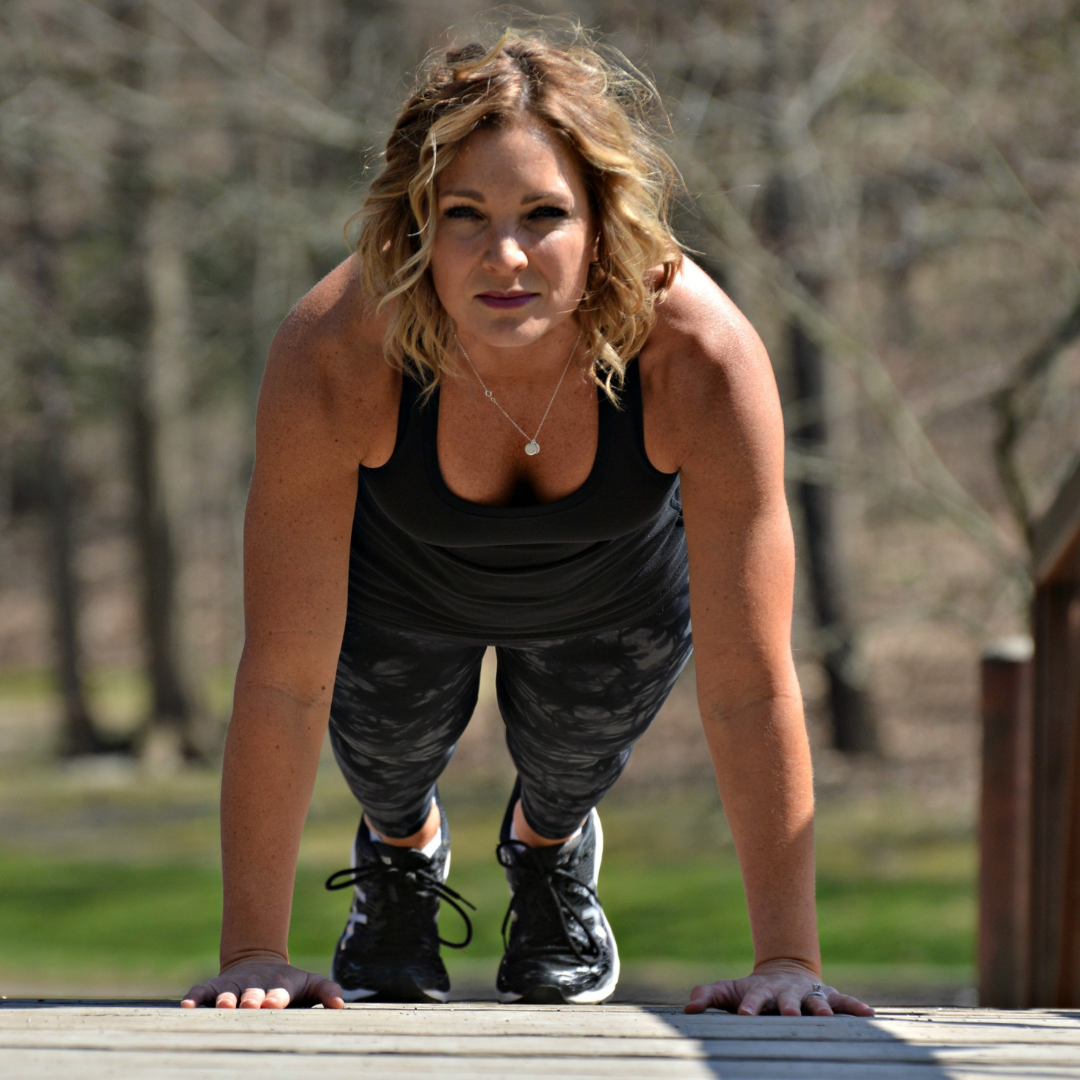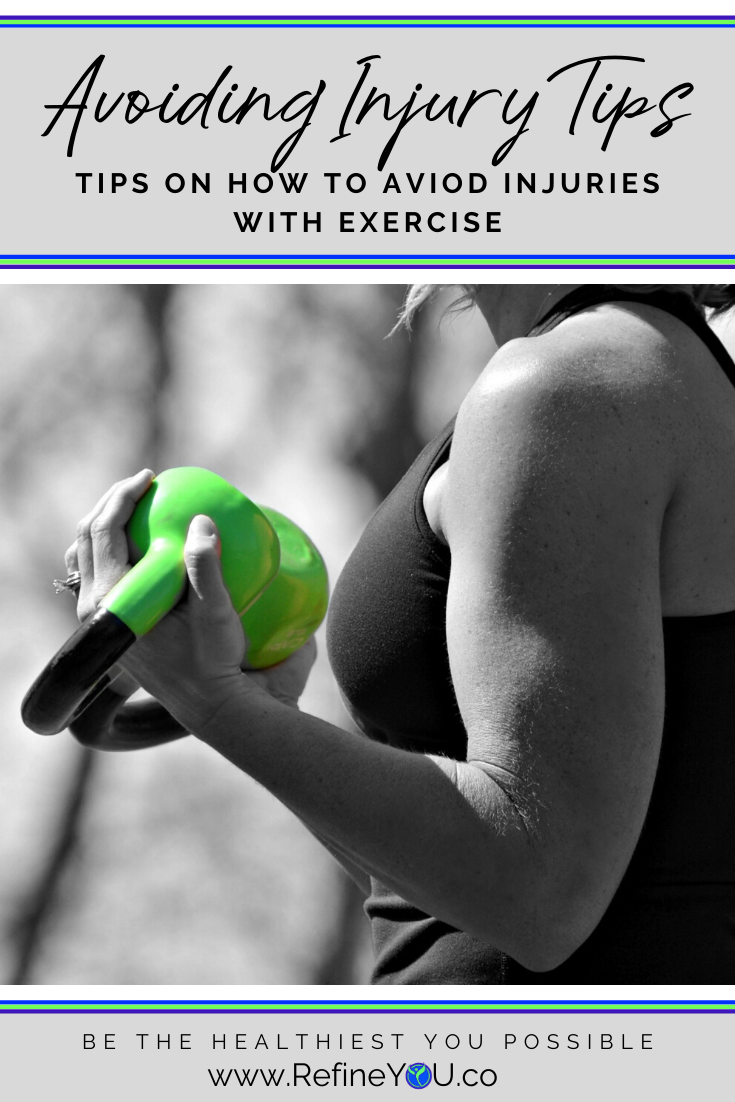7 Tips to Avoid Injuries
How to Avoid Injuries when Exercising
The most common types of injuries from exercise are muscle strains, sprained wrists and ankles, shoulder injuries, tendinitis, shin splints, back strains and injuries and knee injuries.
Here are 7 tips on how to prevent overuse injuries and injuries while exercising.
For beginners, make sure you are healthy enough to start an exercise regimen and ease into it! For everyone, especially those over the age of 45, you should be evaluated by your physician before starting. Nothing good will come from someone who has not exercised at all in years and going to a high intensity class or cross fit gym. Choose a reasonable activity and start out at a lower intensity and shorter amount of time. See how you feel during, after AND the next day. A little soreness is okay but more than just being sore means you overdid it and you need to decrease the intensity or length of time.
Warm-up, Cool-down, and stretch or use a foam roller. Prior to any workout you should warm up for about 5-10 minutes doing something light like jump rope in place, a brisk walk or light jog. After your warm up get some stretching in or use a foam roller for at least 5 minutes. After your workout, do a 5-10 minute cool down with a few stretches.
Have some variety in your workouts. Don’t do the same thing or work the same muscle group every day. Alternate between cardio and strength days. On strength days, work different muscle groups so you have at least 2 days of rest. For example, don’t do legs 3 days in a row. For your cardio workouts, vary your activity. There are so many things that you can choose from: swimming, biking, walking, running, dancing, boxing, the list goes on and on! This variety prevents the overuse injuries like tendinitis, shin splints and muscle strains.
Use the correct form. Make sure you know what you are doing and using the correct form when exercising, especially with strength training. I see so many people in the gym that really don’t know what they are doing with these weights. Protecting your joints and your back is KEY and good form is a big part of this. You can strain your back by your posture being off just a little bit. You can tear cartilage in your knees and shoulders if you are not careful. Work with a trainer at first to ensure you are doing things correctly or make sure you see a demonstration of the exercise before performing it yourself.
Use the right equipment. For strength training, if you are a beginner, using the machines at a gym would be better to start out with. They are very user friendly and allow less room for error. Then advance to some free weights as you get stronger and are used to the exercises. Your equipment also includes what you bring to the gym and what you are wearing. Don’t wear jeans and loafers to work out in. Don’t wear pants and long sleeves outside in 80 degree weather. Make sure you have breathable clothing and wear supportive SHOES. For runners, you should be replacing your shoes every 300-500 miles.
Support your workouts with your nutrition. Make sure you have plenty of water to stay hydrated during your workouts. You should also be eating enough to fuel your body. If you are working out too hard and not eating enough, you will break down muscle and be more prone to injury. This can also cause too much stress to your body and this will affect your hormones negatively. I can go on and on about hormones and how important they are in our health, but bottom line, we want to keep our hormones regulated. Eating enough of the right foods is also important.
Certain foods can cause an inflammatory response in our bodies: dairy, gluten, processed foods, etc. Eating a healthy diet with enough protein and vegetables every single day will help you feel full and help you build lean muscle and prevent muscle breakdown.
Listen to your body. With weights, if it hurts or starts to hurt, don’t do the exercise at all or talk with a trainer to make sure you are doing the exercise correctly. With cardio, if it starts to hurt, take a few days off or do something different. Make sure you are warming up and stretching. Taking days off can be difficult to do for those of us that really enjoy exercise. BUT, if you don’t take care of it right away, you will end up making it worse and you will be down and out for a longer period of time.
Injuries, no matter how careful you are, can happen. If you follow my tips, you will hopefully be able to avoid them no matter your fitness level. If you’re ready to make a lifestyle change for a healthier and more fit you, let’s chat. Email me! I specialize in working with clients from all different backgrounds. Each member of The Refine YOU Program gets a customized nutrition program with workouts from me to optimize their health! What are you waiting for? LETZGO!


